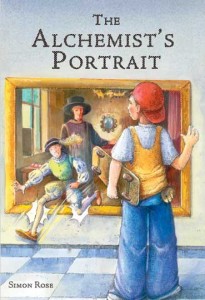Historical Fiction: Part Ten – Dialogue
 As in stories with contemporary settings, the dialogue of the characters in historical fiction stories can help us to learn more about them and also move the story along. Dialogue must be broadly in keeping with the era, but not so much that it becomes difficult for the reader to understand. Dialogue should also reflect the knowledge and thoughts of people in that time period.
As in stories with contemporary settings, the dialogue of the characters in historical fiction stories can help us to learn more about them and also move the story along. Dialogue must be broadly in keeping with the era, but not so much that it becomes difficult for the reader to understand. Dialogue should also reflect the knowledge and thoughts of people in that time period.
Novels, plays and contemporary accounts of events can help writers to understand the dialogue of their chosen era. From more recent times there are plenty of examples from the seventeenth, eighteenth, and early nineteenth centuries, as well as the Victorian era and the twentieth century. We can get some idea of how the inhabitants of ancient Greece or Imperial Rome may have talked from their surviving literature, but this is sometimes just guesswork. It’s also difficult to imagine how people conversed in the Middle Ages. Work composed in Old English or Middle English, such as the works of Chaucer, reveal the language of the time, but using this in your dialogue for medieval characters would make your story very difficult for your readers to understand. Shakespeare’s plays also give us an insight into the Elizabethan and Jacobean period. However, it’s not advisable to use this in the dialogue of characters inhabiting the world of the late sixteenth and early seventeenth centuries in your novel for the same reason.
It can be useful to avoid the use of contractions in dialogue for characters in the medieval period, for example. While this may not be entirely accurate it does give the characters a more authentic feel. For example, “I don’t think they’ll dare to attack the castle again before it gets dark” doesn’t sound as in keeping with the Middle Ages as “I do not think that they will dare to attack the castle again before nightfall.” Think of movies that are set in different historical periods. Whether they’re historically accurate or not, the dialogue usually sounds like we’d expect, even if it’s not 100% correct.
It’s also important to make sure that you don’t put thoughts into people’s heads or concepts in their dialogue that are alien to that time period. It can be tempting to slip modern beliefs or assumptions into your character’s speech, but this will detract from the authenticity of your historical fiction tale.



